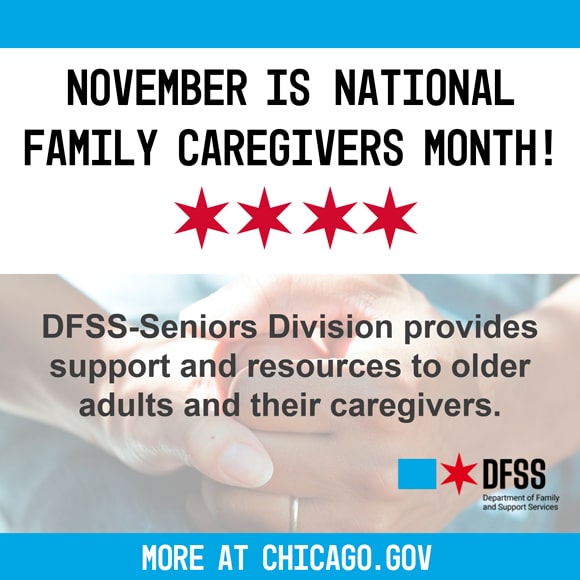Chicago area hospitals take steps to increase patients’ overall health through health literacy
Greg Banks had one month in which he walked less and ate more cookies than he intended. And he knew Zaundra Boyd would have a conversation with him at their monthly check in about doing better.
“I slacked off, I have to be honest,” says Banks, 52, of Algonquin. “It was hard, but she was on me. She told me to get back in line, and get it together.”
Banks doesn’t like letting down Ms. Boyd, as he calls her, his kidney health literacy specialist with Northwestern Medicine’s African American Transplant Access Program. “I don’t want to disappoint her,” Banks says. “I know she knows what she’s talking about because she only wants the best for me.”
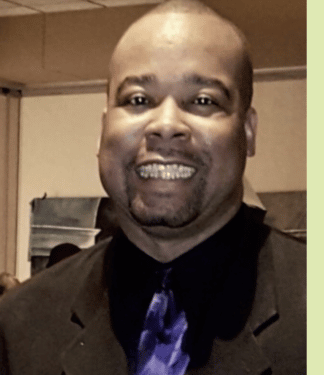
Banks has been on a transplant waiting list for a new kidney since February 2020. As part of the wait list process, Banks, an accountant, checks in with Boyd in her downtown office monthly. There are no time limits to their visits, and they catch up on family, feelings, and Banks’s health plan. Their goal: Get Banks as healthy as possible now so that he can have the best outcome during and after his kidney transplant, whenever his turn arises.
“I’ve considered her a friend from the time we met,” he says.
Boyd is part of a cadre of health literacy experts, coaches, and specialists at institutions across Chicago. They view their work as essential to reducing medical costs, improving outcomes, and giving people the tools to take full ownership of their health. People need health literacy specialists because only 12% of American adults have proficient health literacy skills, according to a study of health literacy in the United States from the Milken Institute, a nonprofit think tank.
“A person’s health should not be dependent on if they understand a particular vocabulary, what zip code they live in, or what their background is.”
Improved health literacy helps everyone, but it especially impacts Black and Brown communities, increasing healthcare equity. In the U.S., Latino, Black, and Native American communities showed the lowest levels of health literacy.
In 2019, Dinee Simpson, MD, vice chair for faculty development and diversity in the department of surgery at Northwestern Medicine, created Northwestern’s African American Transplant Access Program to make transplants more attainable for Black communities across Chicagoland. She invited Boyd to join her team last year.
Boyd says the program creates an access point for disenfranchised adults, adding that she sees value in the program because, “I have so much pride in my community. I want my community to be here 100 years from now.”
Health literacy in healthcare
Health literacy refers to the ability to understand one’s own health and the healthcare system, including following physician instructions, knowing when to get shots and vaccinations, and managing one’s medications and conditions. Health literacy experts create bridges between patients and providers, helping people understand how to better maintain their health and access the system.
Boyd says she also sees herself as a health coach and educator. “After I talk with patients and perform literacy assessments with them, I’m there for them as their cheerleader and guide,” she says.
“I encourage them to allow me to be their partner during this amazing process to change or implement better lifestyle habits that will improve their overall health.”
Lisa Sandos, health literacy manager at University of Chicago Medicine, says health literacy creates a sense of shared work between a patient, their family, and the care team.
She points to research from the Agency for Healthcare Research and Quality showing that health literacy and a shared decision-making model between patients and healthcare staff leads to less anxiety, quicker recoveries, and higher likelihoods that patients will follow treatment plans.
“When a person has access to information they can use, they can then make the best decisions for themselves and others that they care for,” Sandos says.
There’s a financial aspect to increased health literacy, as well. According to the Centers for Disease Control and Prevention, improving health literacy could prevent nearly 1 million hospital visits and save more than $25 billion each year.
Paula Allen-Meares, PhD, executive director of the Office of Health Literacy and professor of medicine and public health at the University of Illinois Chicago, says those who manage their healthcare well could avoid emergency room visits.
The courage to ask questions
These health literacy experts agree that people shouldn’t feel shame in asking questions of their healthcare providers. People should be encouraged to do so — and healthcare staff need to break down medical terms in ways they can understand.
Yolanda Coleman, PhD, chief nursing officer at Weiss Memorial Hospital in Chicago’s Uptown neighborhood, says that at Weiss, where she also serves on the health equity committee, staff members often use a “teach-back method” to make sure patients understand discharge and medication instructions.
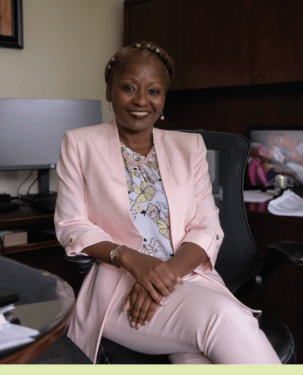
“If the healthcare provider educates the patient on a particular procedure or aftercare, then we ask certain questions or ask them to explain it,” she says. Hospital leaders train staff “to educate a patient based on where they’re at. Some patients may be morevisual learners, and some may want you to sitdown and draw it out for them. Some patients may want you to speak it out for them.”
Sandos says it’s natural for people to be unfamiliar with terms outside of their own profession or experience. Just as people should be unafraid to ask questions about their care, healthcare workers should also avoid medical jargon.
“All of us, regardless of our level of formal education or background, depend on the knowledge and specific expertise of others,” Sandos says. “A healthcare worker should not talk to me with the assumption that I am supposed to understand what they have spent years studying — just as I should not expect them to understand the language and vocabulary of an auto mechanic or a plumber or a lawyer.”
“Some patients may be more visual learners, and some may want you to sit down and draw it out for them. Some patients may want you to speak it out for them.”
Further, if people grasp their own health needs — such as whether they need to visit primary care, urgent care, or the emergency room — it can help close financial and knowledge gaps.
“A person’s health should not be dependent on if they understand a particular vocabulary, what zip code they live in, or what their background is,” Sandos says. This means helping people understand how to access the healthcare system and how they can take care of their own health at home.
Here’s a glimpse at how Chicago institutions are prioritizing health literacy.
Northwestern Medicine

Transplant surgeon Dinee C. Simpson, MD, created the African American Transplant Access Program in 2019 after her research on kidney disease and her conversations with Black patients about navigating the healthcare system and complex diagnoses. The program addresses racial disparities in transplant access and helps Black communities acquire comprehensive care through education and resources.
Last year, the program hired a kidney health literacy specialist, who meets with patients regularly before and after their transplant procedures, and helps develop strategies and tactics around healthy lifestyle choices. This helps ensure that each person’s transplant is as successful as possible.
University of Chicago Medicine
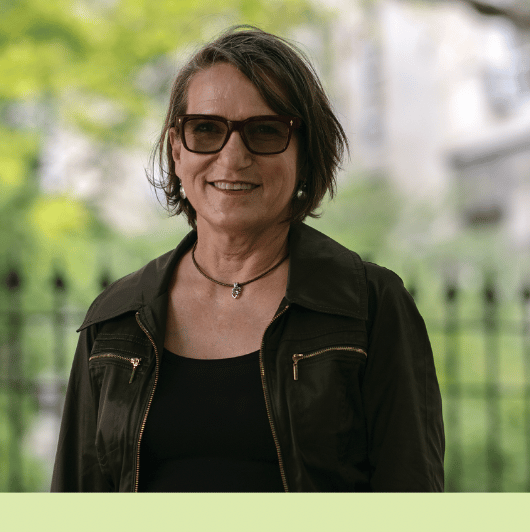
Easy-to-understand patient materials and clear communication from staff are priorities at UChicago Medicine. Its Urban Health Initiative team focuses on community health and access to care and develops plain language materials that patients can understand clearly the first time they read them.
Lisa Sandos is UChicago Medicine’s health literacy manager. Her team created education materials for the South Side Pediatric Asthma Center, which is a community collaboration led by UChicago Medicine. The center has helped families decrease the number of emergency room visits and missed days of school related to asthma. Education materials focus on health literacy, and community health workers also use the teach-back method to check for understanding when sharing information with patients.
In addition to Sandos, the team includes a health literacy consultant who reviews patient education materials for health literacy and plain language, as well as a cultural competence team that trains team members to build staff health literacy skills.
University of Illinois Chicago, School of Medicine
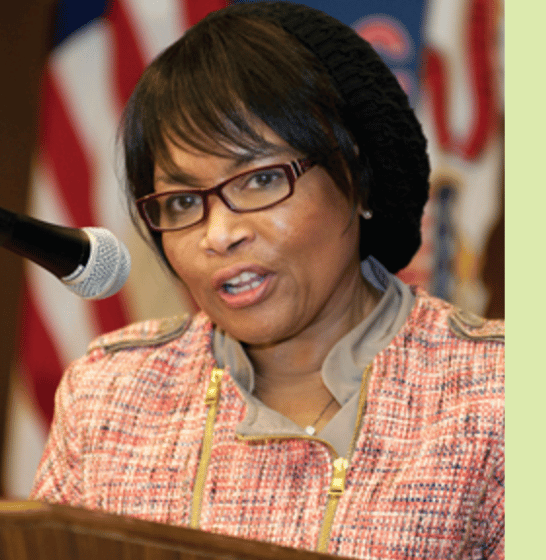
The Office of Health Literacy at the University of Illinois Chicago’s College of Medicine educates students and providers about health literacy. The office also assists other organizations in improving their systems of care, collecting data, and conducting research to advance health literacy, according to Executive Director Paula Allen-Meares, PhD.
The office focuses on building trust in underserved communities, raising healthcare awareness, and listening to people’s needs through partnerships with well-established community organizations.
Weiss Memorial Hospital
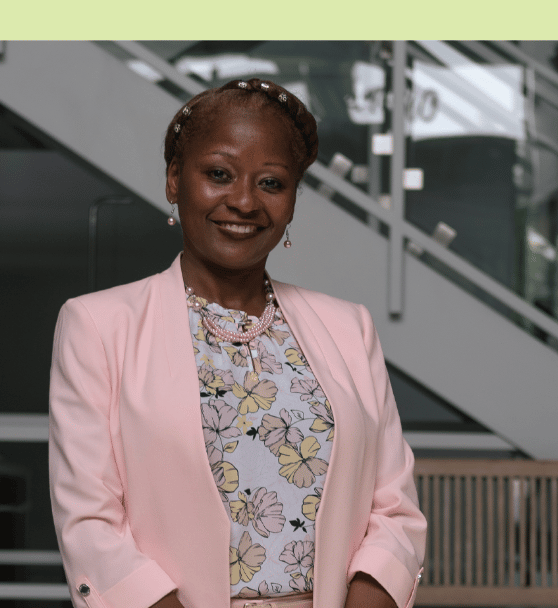
Photo by Jim Vondruska
Weiss Memorial Hospital has a health equity committee tasked with improving community health literacy and patient care outcomes.
Chief Nursing Officer Yolanda Coleman, PhD, leads the initiative, which trains staff to assess patients’ cultural competency needs and uses techniques like “teach-back” to ensure that patients understand instructions and feel a sense of ownership over their healthcare.
Originally published in the Fall 2022/Winter 2023 print issue.

Erin Chan Ding is a Chicago-area journalist and editor who writes about travel, fitness, trends, tech, and the intersection of race and identity.












